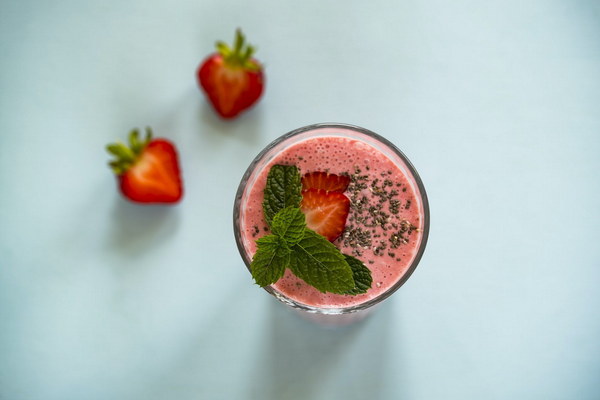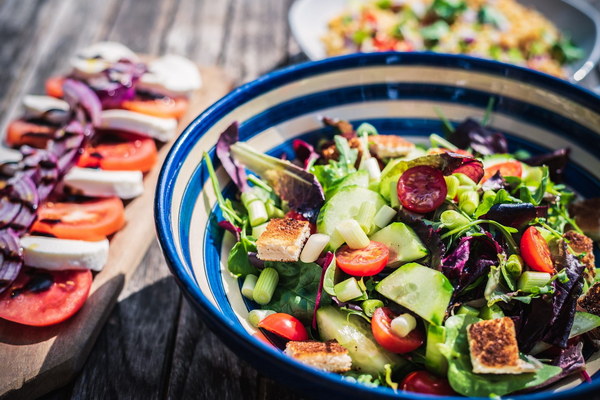Nourishing Yourself During Pregnancy A Comprehensive Guide to Healthy Eating
Embarking on the incredible journey of pregnancy is a time of joy and anticipation. However, it also requires extra care and attention to one's health. Proper nourishment is crucial during this period to ensure the health and well-being of both the mother and the developing baby. In this article, we will explore the key aspects of how to nourish yourself during pregnancy, focusing on a balanced diet and beneficial foods.
Understanding Your Nutritional Needs
During pregnancy, your body requires additional nutrients to support the growth and development of the fetus. The American College of Obstetricians and Gynecologists (ACOG) recommends that pregnant women consume an extra 300 calories per day after the first trimester. It's important to note that these extra calories should come from nutrient-dense foods, rather than empty calories from sugary snacks or high-fat meals.
Balanced Diet for Pregnancy
A balanced diet during pregnancy should include a variety of food groups, ensuring an adequate intake of essential nutrients:
1. Carbohydrates: Carbohydrates are the body's primary source of energy. Include whole grains, such as whole wheat bread, brown rice, and oatmeal, in your diet. These foods also provide fiber, which is important for digestion.
2. Proteins: Proteins are essential for the growth and repair of tissues. Lean meats, poultry, fish, eggs, dairy products, legumes, and nuts are all good sources of protein.
3. Fruits and Vegetables: Aim for a variety of fruits and vegetables, including leafy greens, to ensure an adequate intake of vitamins, minerals, and antioxidants. These foods also provide fiber and promote digestion.
4. Dairy: Dairy products are an excellent source of calcium, which is crucial for the development of the baby's bones and teeth. Include milk, cheese, yogurt, and fortified plant-based milk in your diet.
5. Healthy Fats: Healthy fats, such as those found in avocados, nuts, seeds, and fatty fish (like salmon, mackerel, and sardines), are important for the baby's brain development. Limit the intake of saturated and trans fats, which can increase the risk of birth defects and other health issues.
Specific Nutrients to Focus On
1. Iron: Iron is essential for the production of red blood cells and the prevention of anemia, a common condition during pregnancy. Good sources of iron include lean meats, poultry, fish, legumes, and fortified cereals.
2. Folic Acid: Folic acid is vital for the development of the baby's neural tube, which eventually becomes the brain and spinal cord. Include leafy greens, legumes, citrus fruits, and fortified cereals in your diet, and consider taking a folic acid supplement as recommended by your healthcare provider.
3. Calcium: Calcium is important for the baby's bone and teeth development, as well as for maintaining the mother's bone density. Consume dairy products, leafy greens, and fortified foods to meet your calcium needs.
4. DHA: Docosahexaenoic acid (DHA) is an omega-3 fatty acid crucial for the baby's brain and eye development. Incorporate fatty fish into your diet, but be cautious of high levels of mercury found in some fish species.
5. Protein: Adequate protein intake is essential for the growth and repair of tissues. Include lean meats, poultry, fish, eggs, dairy products, legumes, and nuts in your diet.
Safe Food Practices

To avoid foodborne illnesses, follow these safe food practices:
1. Cook meats, poultry, and fish to the appropriate temperature.
2. Wash fruits and vegetables thoroughly before eating.
3. Avoid raw or undercooked eggs and unpasteurized dairy products.
4. Keep hot foods hot and cold foods cold.
Seek Professional Advice
It's important to consult with your healthcare provider to ensure that you are meeting your nutritional needs during pregnancy. They can provide personalized advice based on your specific health condition and dietary preferences.
In conclusion, nourishing yourself during pregnancy is essential for the health and well-being of both mother and baby. By focusing on a balanced diet, consuming nutrient-dense foods, and seeking professional advice, you can ensure a healthy pregnancy journey.









